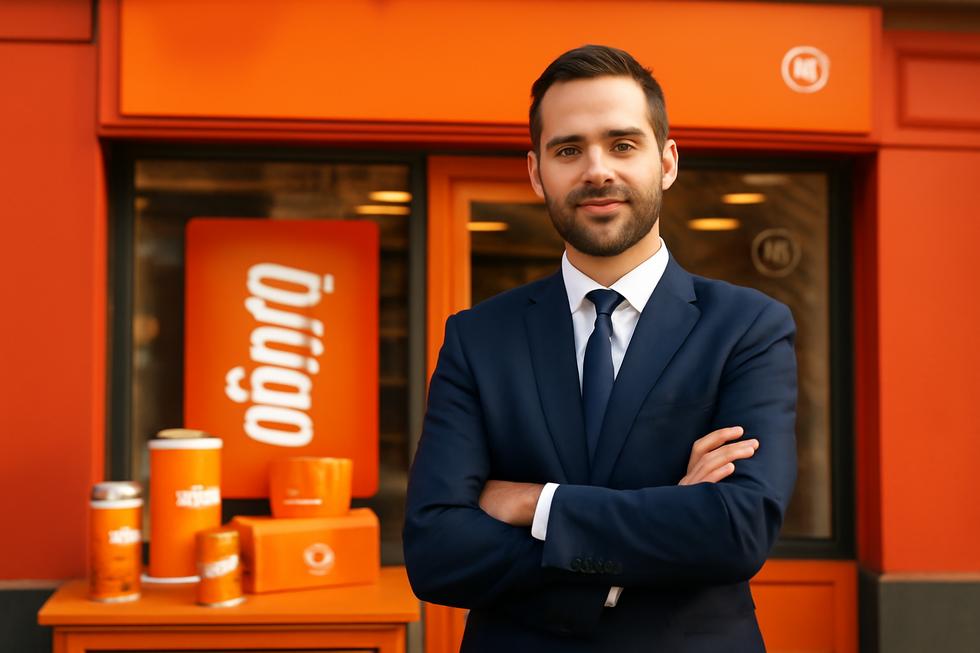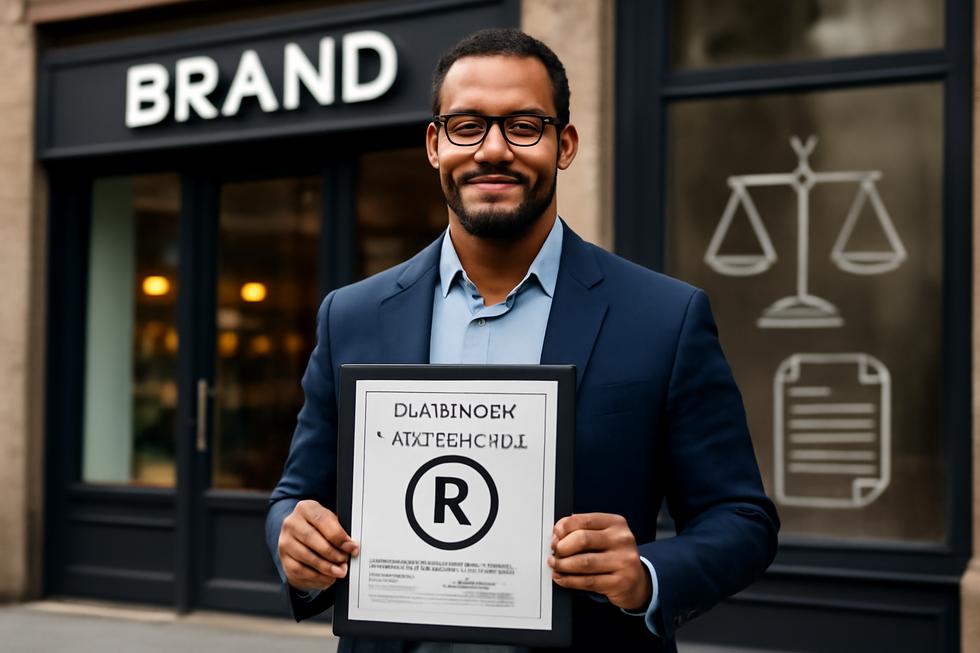Introduction
Slogans are powerful tools that encapsulate a brand’s message in a memorable phrase. Business owners often wonder if these catchy lines can be protected by copyright law. Understanding the distinction between copyright and trademark protections is essential for safeguarding your brand assets effectively. This article unpacks the legal framework around slogans, explaining why copyright does not cover them and guiding you through the trademark registration process—the proper avenue for protection. Each chapter builds a comprehensive understanding of how to legally shield your slogan, helping you make informed decisions to secure your business’s identity.
Tables of Contents
Chapter 1: Understanding can you copyright a slogan: Distinguishing between Copyright and Trademark Protection
- Why Slogans Fall Outside Copyright and Find Security in Trademarks
- Trademark Protection in Practice: How Slogans Secure Exclusive Brand Identity in Commerce
- Real-World Insights: How Trademark, Not Copyright, Shields Slogans in Branding
Chapter 2: Legal nuances about can you copyright a slogan: Why Copyright Does Not Cover Slogans
- Unraveling Why Copyright Law Excludes Slogans: The Legal Limits on Short Phrases and Their Protection
- Why Trademark Law, Not Copyright, Is the Legal Shield for Slogans
- Navigating the Economic and Social Impact of Slogan Protection: The Critical Role of Trademark Law in Intellectual Property Strategy
Chapter 3: Trademark Protection and Registration for Can You Copyright a Slogan: The Appropriate Legal Path for Slogans
- Why Slogans Cannot Be Copyrighted and How Trademarks Secure Your Brand Identity
- Navigating Trademark Registration for Slogans: Essential Criteria and the Step-by-Step Process
- Navigating the Economic, Technological, and Legal Dimensions of Trademarking Slogans
Chapter 1: Understanding can you copyright a slogan: Distinguishing between Copyright and Trademark Protection
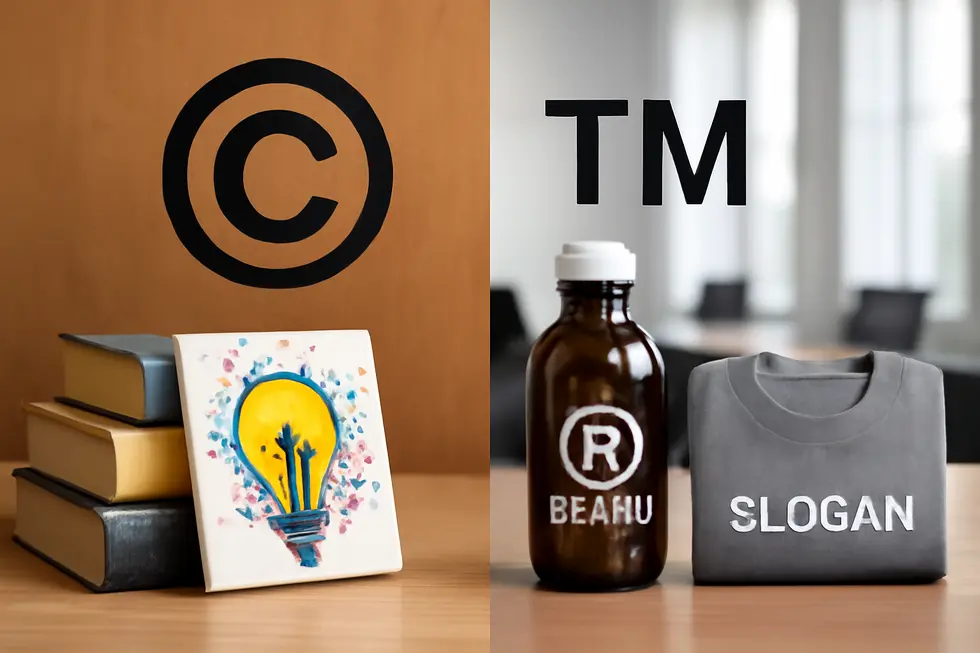
1. Why Slogans Fall Outside Copyright and Find Security in Trademarks
Copyright law is designed to protect original creative works such as books, music, and artwork. However, it explicitly excludes short phrases, including names, titles, and slogans, from protection. This exclusion is based on the principle that slogans lack the necessary originality and substantial creativity to qualify as copyrightable subject matter. Essentially, slogans are too brief and utilitarian to be considered distinctive expressions of ideas under copyright law. Consequently, no matter how catchy or clever a slogan may be, copyright does not offer legal ownership or exclusive control over its use.
Instead, slogans are protected through trademark law, which serves a fundamentally different purpose. Trademark law focuses on safeguarding distinctive brand identifiers that distinguish one company’s goods or services from those of another. These identifiers include names, logos, and slogans that function as source indicators in commerce. When a slogan acquires distinctiveness and becomes recognizable as a signifier of a particular brand, it is eligible for trademark protection.
The legal frameworks of copyright and trademark show important distinctions impacting slogan protection. Copyright covers original artistic or literary expressions and automatically applies to qualifying works without registration, though registering can provide additional enforcement benefits. Its protection lasts for the life of the author plus 70 years. In contrast, trademarks protect brand identifiers rather than creative content. They require formal registration to unlock the strongest legal rights, typically taking 12 to 18 months for examination and approval, and can be renewed indefinitely as long as the trademark remains in active use.
A trademarked slogan must be distinctive and directly tied to a brand’s goods or services, preventing others from using confusingly similar marks. For example, a phrase that has achieved secondary meaning by consumers as a brand source can be successfully registered and fiercely defended under trademark law. Registration confers exclusive rights to use the slogan in commerce, allowing businesses to prevent competitors from capitalizing on their established identity or causing marketplace confusion.
This protective scope explains why slogans often turn to trademarks rather than copyright for legal security. While copyright celebrates creativity and expression, trademarks concentrate on preventing unfair competition and preserving brand identity. The clearer the slogan’s connection to a specific source, the stronger its trademark protection prospects.
For those interested in exploring the registration process and strategies around protecting a slogan through trademark law, resources such as trademark protection for brand identity offer comprehensive guidance.
Ultimately, grasping the legal foundations and key differences between copyright and trademark highlights why slogans cannot be copyrighted but can be trademarked to secure exclusive commercial use and brand recognition.
2. Trademark Protection in Practice: How Slogans Secure Exclusive Brand Identity in Commerce
Slogans play a crucial role in branding by encapsulating a company’s identity and message in just a few words. However, when it comes to legal protection, slogans cannot be copyrighted. Copyright law excludes short phrases, including slogans, because they lack the originality and length needed to qualify as protected creative works. This exclusion means that copyright does not grant exclusive rights over slogans or prevent others from using similar short phrases. Instead, the law relies on trademark protection to secure a slogan’s uniqueness in commerce.
Trademark law protects identifiers that distinguish goods or services in the marketplace, such as names, logos, and notably, slogans. When a slogan is distinctive and closely linked to the source of a product or service, it qualifies for trademark registration. This registration confers important practical benefits. The trademark owner gains the exclusive right to use the slogan in connection with specified goods or services, effectively barring competitors from using confusingly similar marks that might mislead consumers.
This exclusivity helps prevent dilution of the brand’s identity and reinforces consumer recognition. Over time, a trademarked slogan becomes a powerful asset—enhancing brand loyalty and trust by signaling consistent quality and reputation. Furthermore, owning a trademark provides legal tools to challenge unauthorized use or infringement. Trademark holders can seek court injunctions, damages, or settlements to protect their intellectual property rights, maintaining the slogan’s value and distinctiveness in the market.
The benefits of trademarking a slogan extend beyond legal security. A registered trademark can increase a company’s market value and serve as leverage when negotiating licensing deals or franchise agreements. By licensing the slogan, brand owners can generate additional revenue streams while maintaining control over how the slogan is used. This ability to commercialize a slogan as an intellectual property asset distinguishes trademark protection from copyright’s limited scope regarding short phrases.
It is important to note that trademark protection is not automatic. The process of registering a slogan trademark typically takes 12 to 18 months and requires evidence that the slogan functions as a source identifier. Additionally, trademarks must be actively used and renewed to maintain their protected status indefinitely. Failure to use or renew a trademark can result in its cancellation, leaving the slogan vulnerable to copying.
In summary, while copyright law does not protect slogans due to their brevity and lack of originality, trademark law offers a robust framework for securing and enforcing exclusive rights over them in commercial contexts. This legal distinction underscores the importance of understanding trademark protection when seeking to safeguard a slogan as a valuable branding tool. For those considering trademark registration and the benefits it entails, exploring professional guidance and resources such as UpCounsel’s trademark information can provide essential support and clarity.
3. Real-World Insights: How Trademark, Not Copyright, Shields Slogans in Branding
The critical distinction between copyright and trademark protection becomes evident when examining how slogans function in the marketplace. Copyright law does not extend protection to slogans because they are considered short phrases lacking the originality and creativity required for copyright. Instead, the safeguarding of slogans is primarily accomplished through trademark law, which is designed to protect identifiers that represent the source of a product or service.
In practice, well-known slogans illustrate this legal boundary clearly. For instance, prominent brand slogans are trademarked to prevent others from using the phrase in a commercial context that might mislead consumers about product origin or brand affiliation. These trademarks do not restrict the use of such phrases in everyday language or in contexts unrelated to commerce, affirming the role of trademark law in maintaining fair competition and brand identity rather than controlling all usage of words or phrases.
The process and purpose of trademarking a slogan are fundamentally different from copyright. While copyright arises automatically when an original creative work is fixed in a tangible form, trademark protection requires a slogan to be distinctive and used in commerce to identify its source. This distinctiveness helps consumers associate the phrase directly with a particular brand, facilitating brand recognition and loyalty. The protection lasts indefinitely, as long as the mark continues to be used and maintained properly through renewal, offering long-term security for brand identity.
Attempts to copyright slogans have repeatedly failed because slogans do not meet the originality threshold. Occasionally, elements like logo designs accompanying slogans might receive copyright protection if they demonstrate sufficient creativity, but this is exceptional. Trademark protection remains the dependable avenue to legally guard a slogan as a brand asset.
The practical significance of trademarking slogans is also evident in how companies monitor and enforce their rights. Active enforcement prevents dilution or misuse that could confuse consumers or weaken brand distinctiveness. Trademark registrations provide public notice of ownership and allow legal action against infringing uses in commerce.
For businesses seeking to protect their slogans effectively, focusing on trademark registration is essential. Unlike copyright, trademark protection requires specific legal steps, including application, examination, and maintenance processes, typically spanning over a year. Consulting specialized trademark resources can guide brand owners through these processes, ensuring proper legal coverage for their slogans in commerce.
For further insight into trademark protection and its crucial role for business branding and slogan protection, exploring dedicated trademark service providers offers practical guidance and support.
Chapter 2: Legal nuances about can you copyright a slogan: Why Copyright Does Not Cover Slogans
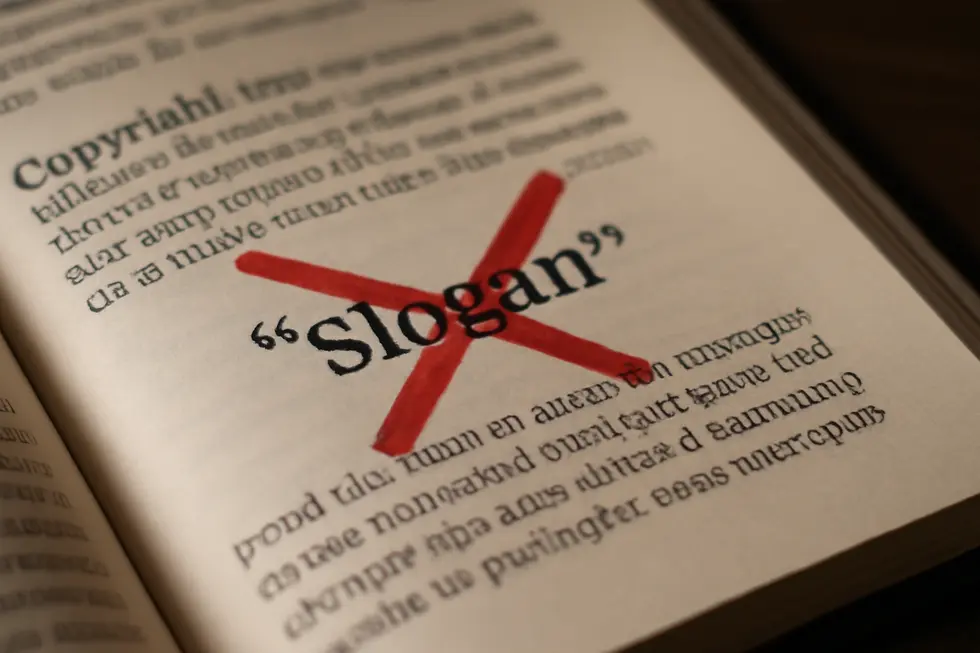
1. Unraveling Why Copyright Law Excludes Slogans: The Legal Limits on Short Phrases and Their Protection
Understanding why copyright law excludes slogans requires recognizing the fundamental nature of copyright protection. Copyright safeguards original creative expression fixed in a tangible form, such as novels, music, films, or artwork. It is designed to encourage the creation of substantial, unique works by granting exclusive rights to their authors. However, slogans—the brief phrases often used in marketing—do not qualify under these standards. They are simply too short and lack the depth of originality that copyright demands.
Legally, slogans are treated as “words and short phrases” which federal regulations explicitly exclude from copyright eligibility (37 C.F.R. §202.1(a)). This exclusion exists because short phrases are considered common linguistic tools rather than original works. They often serve as basic identifiers or catchy expressions that do not rise to the level of creativity or authorship the law protects. For example, a slogan like “Just Do It” is memorable, yet its brevity and simplicity keep it out of copyright coverage.
The absence of copyright protection for slogans preserves the free use of language in everyday communication and advertising. Were slogans copyrighted, it would severely limit competitors or individuals from using common expressions or variations thereof. This restriction would hinder the natural exchange of ideas and speech, something copyright law aims to avoid.
While slogans cannot receive copyright, they often gain protection through trademark law. Trademark safeguards symbols, names, and phrases that identify the source of goods or services, preventing consumer confusion in the marketplace. Unlike copyright, which protects creative expression, trademarks protect branding elements that distinguish one business from another. By registering a slogan as a trademark, businesses can secure exclusive rights to use it commercially, as long as the slogan remains distinctive and in active use.
Trademark protection focuses on the slogan’s function as a brand identifier rather than its originality as a creative work. The registration process typically takes 12 to 18 months and can be renewed indefinitely, allowing ongoing exclusivity. This means that while copyright law excludes slogans, trademark law offers a meaningful avenue for legal protection in commerce.
In summary, the key legal nuance is that copyright law’s coverage is intentionally limited to protect original creative works but not common or brief phrases like slogans. For effective legal protection of slogans, trademark registration is the correct path, providing businesses with enforceable rights tied to brand identity rather than authorship.
For further details on how trademark law intersects with branding and marketing materials, you may explore insights from Trademark2Go’s guidance on business trademarks. Additionally, university copyright resources explain the distinction clearly in line with federal regulations (37 C.F.R. §202.1(a)).
2. Why Trademark Law, Not Copyright, Is the Legal Shield for Slogans
Copyright law and trademark law serve fundamentally different roles in the protection of intellectual property. When considering whether you can copyright a slogan, it is crucial to understand these distinct purposes. Copyright safeguards original works of creative expression fixed in tangible form, such as books, paintings, music, and films. However, it explicitly excludes short phrases, names, and slogans, as they fail to meet the threshold of originality and creativity required for protection. Such brief linguistic expressions are considered too simple and common to be copyrighted. This legal limitation prevents the monopolization of common language elements that do not represent artistic or literary creativity.
A slogan, by its nature, is typically a concise phrase designed to be memorable and to convey a brand’s message or identity. Since slogans are short and utilitarian, they do not qualify as copyrightable works. The U.S. Copyright Office underlines in its regulations that words, short phrases, and familiar symbols are outside the scope of copyright protection. This rule ensures that copyright law remains focused on more substantial creative works rather than fragments of language.
In contrast, trademark law addresses the protection of brand identifiers used in commerce, which includes names, logos, and slogans that distinguish a company’s goods or services from those of others. Unlike copyright, trademarks protect the source and reputation of a business rather than original creative expression. A slogan can serve as a powerful trademark if it is distinctive and closely associated with a brand, helping consumers identify and differentiate products in the marketplace. For example, a unique, recognizable slogan connected with a brand can prevent others from using confusingly similar phrases that might mislead customers.
The process of trademark protection requires that the slogan be used in commerce and that it helps to identify the origin of goods or services. Trademark registration grants exclusive rights enabling the owner to enforce protection against infringement and unauthorized use. Unlike copyrights, trademark registrations can last indefinitely as long as the mark remains actively used and renewed appropriately. This makes trademark protection a practical and strategic tool for businesses wanting legal ownership of slogans.
This distinction between copyright and trademark highlights the necessity of applying the correct legal framework for a slogan’s protection. Copyright focuses on safeguarding creative expression in its fixed form, while trademark centers on the commercial and distinctive use of terms that build brand identity. Since slogans function as source identifiers rather than creative works, trademark law is the suitable mechanism to secure their legal protection.
For businesses and creators examining how to protect their slogans, pursuing trademark registration is the essential step. It provides enforceable rights in the competitive marketplace, avoiding confusion and misuse. For further guidance on why slogans fall outside copyright and how trademark safeguards them, the Global Law Experts article “Can you Copyright a Slogan?” offers a detailed legal perspective.
Additionally, to understand the benefits and process of trademark protection for your business’s branding elements, consider exploring resources like Trademark2Go’s insights on trademarks for businesses.
3. Navigating the Economic and Social Impact of Slogan Protection: The Critical Role of Trademark Law in Intellectual Property Strategy
Understanding the Distinct Legal Boundaries Between Copyright and Trademark
Slogans occupy a unique space in intellectual property law, where their protection is shaped by distinct legal principles rather than the general copyright regime. Copyright law expressly excludes short phrases, including slogans, because they lack the originality and creative authorship required for protection. This limitation reflects a broader social and economic reasoning—that slogans are considered common language elements rather than fixed, original creative works like literature or music. Consequently, relying on copyright protection for slogans fails to provide businesses with the exclusive rights necessary to safeguard a key aspect of their brand identity.
Instead, trademarks serve as the appropriate tool for protecting slogans. Trademark law focuses on elements that identify and distinguish the source of goods or services in commerce, including names, logos, and slogans. A registered trademark grants exclusive rights to use a slogan in relation to specific products or services, preventing consumer confusion and unauthorized commercial use by competitors. This legal framework enables brands to build unique market positions and maintain consumer loyalty by clearly associating slogans with their offerings.
The societal implications of this distinction are significant. When slogans lack adequate protection, brands face the risk of dilution and reputation harm due to competitors adopting similar or confusingly close phrases. Trademark protection strengthens consumer trust by preserving the authenticity and distinctiveness of brands in the marketplace. Moreover, this clarity encourages fair competition and innovation, as businesses invest confidently in developing compelling brand messages. Economically, trademark enforcement incentivizes marketing efforts that contribute to robust commerce and brand-driven growth.
Developing an effective intellectual property strategy requires businesses to recognize the limitations of copyright for slogans and instead prioritize trademark registration and management. Trademark registration typically takes 12 to 18 months but provides long-term, renewable protection as long as the mark remains in use. This approach not only embeds legal certainty but also supports scalability and expansion in both national and global markets.
Ignoring these critical differences can expose businesses to costly legal disputes and economic setbacks. For example, companies attempting to rely solely on copyright may find themselves vulnerable to infringement as courts do not extend protection to slogans under copyright law. By contrast, a solid trademark portfolio enables proactive enforcement and greater legal leverage in disputes. Regularly auditing trademark assets and adapting to jurisdictional variations in trademark law strengthen this protection further.
In essence, the distinction between copyright and trademark protection for slogans reflects a broader economic and social framework designed to balance creativity, fair competition, and consumer clarity. Embracing trademark law as the primary mechanism for slogan protection is essential for companies serious about securing their brand identity and maintaining competitive advantage. For those seeking clarity on when and how to protect business elements, exploring resources on why your business needs a trademark offers practical guidance on establishing the right protection.
This nuanced legal landscape underscores that the economic and social vitality of brands depends on applying the correct intellectual property tools—trademark law—rather than copyright, for slogans and similar short phrases.
External reference: Global Law Experts on slogan copyright and trademark protection
Chapter 3: Trademark Protection and Registration for Can You Copyright a Slogan: The Appropriate Legal Path for Slogans
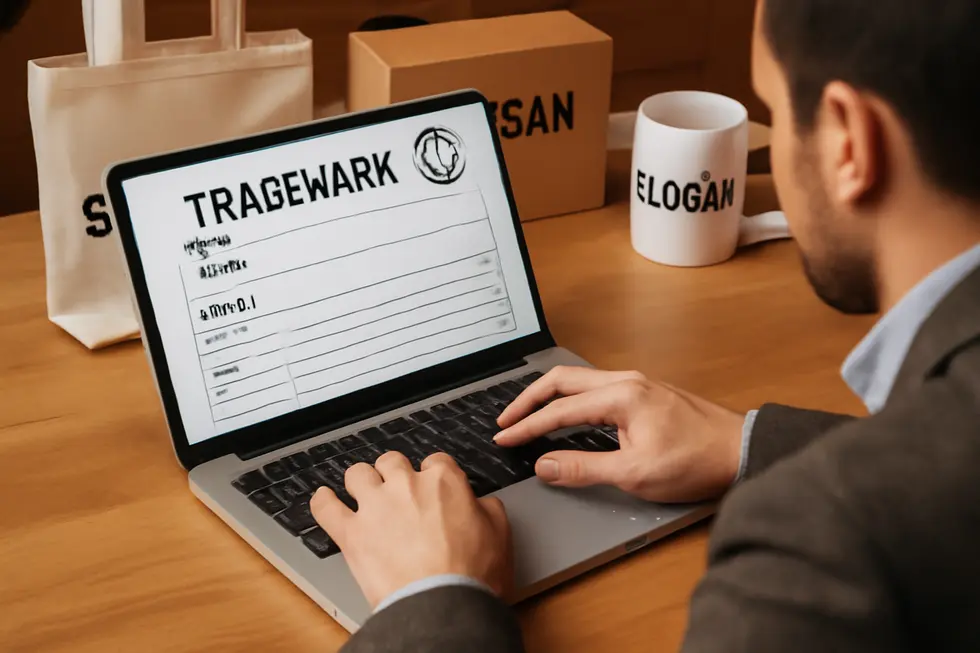
1. Why Slogans Cannot Be Copyrighted and How Trademarks Secure Your Brand Identity
Slogans and Copyright: The Legal Limitations
Slogans, by their very nature, are concise phrases crafted to capture attention and convey a brand’s essence quickly. However, despite their marketing significance, they do not qualify for copyright protection. Copyright law requires an original work that exhibits a sufficient degree of creativity and expression. Short phrases, names, or slogans simply do not meet these criteria. The United States Copyright Office explicitly excludes “words and short phrases such as names, titles, and slogans” from copyright protection under 37 C.F.R. §202.1. The rationale is that slogans are too brief and lack the complexity and creativity that copyright aims to safeguard.
This means if you create a catchy slogan, copyright law alone will not protect it from being copied or used by others. Unlike literary works, music, or artwork, a slogan is considered a functional snippet of language rather than a creative work, making it ineligible for copyrights.
Trademark: The Right Legal Mechanism to Protect Slogans
Although copyright does not protect slogans, trademark law provides a robust alternative designed specifically for brand identifiers like slogans. Trademark law protects words, phrases, logos, or designs used to identify and distinguish goods or services in commerce. A slogan can become a trademark if it is distinctive and associated directly with a particular brand. This distinctiveness means the slogan should not be generic or merely descriptive but should uniquely point consumers to the source of the goods or services.
For example, iconic slogans that consumers immediately recognize as tied to a brand, such as “Just Do It,” qualify for trademark protection. Registering a slogan as a trademark provides the exclusive legal right to use it commercially and the ability to stop others from exploiting your branding.
The Trademark Registration Process
Securing trademark protection involves submitting an application to the United States Patent and Trademark Office (USPTO). On average, the registration process takes between 12 and 18 months due to examination, publication, and potential oppositions. Once registered, the trademark owner may renew the protection indefinitely every 10 years, provided the slogan remains actively used in commerce. This ongoing renewal ensures the ability to enforce exclusive rights over time and maintain the slogan’s association with the brand.
Trademark protection is not automatic; it requires consistent use and monitoring to prevent infringement. For businesses seeking to safeguard their branding elements, securing a trademark trademark for a slogan is the definitive path.
Understanding why copyright law excludes slogans but trademark law embraces them clarifies the strategic approach businesses must take. Rather than relying on copyright, which offers no safeguards for short phrases, investing in trademark registration is essential to establish and defend exclusive rights to a slogan in the marketplace.
For businesses considering how to protect their slogans, learning about trademark registration can be crucial. Resources such as Trademark 2 Go’s explanations on trademark needs provide practical guidance on how this process safeguards your brand identity.
For more detailed legal perspectives on why slogans cannot be copyrighted and the specifics of trademark protection, the UpCounsel guide on trademarks is an excellent resource.
2. Navigating Trademark Registration for Slogans: Essential Criteria and the Step-by-Step Process
Copyright law explicitly excludes protection for short phrases such as slogans because they are usually too brief and lack the originality required for copyright protection. Instead, trademark law provides the suitable legal framework to protect a slogan as part of a brand’s identity. This protection hinges on the slogan’s ability to serve as a distinctive indicator of the source of goods or services, rather than merely describing them.
For a slogan to qualify for trademark protection, distinctiveness is paramount. The phrase must be more than a generic or descriptive statement about the product or service. Generic slogans like “WE SERVE GOOD FOOD” cannot be trademarked because they simply convey a common attribute and fail to distinguish one business from another. On the other hand, slogans that are creative, unique, or coined expressions that consumers directly associate with a particular brand can qualify. This distinctiveness allows the slogan to fulfill the trademark’s core purpose: identifying and differentiating the origin of goods or services.
The trademark registration process for slogans involves several important steps and criteria. Initially, the slogan must be used in commerce, meaning it is actively connected to the goods or services offered by the brand. Evidence of this use is typically required to support an application. Before filing, a comprehensive search should be conducted to confirm that no existing trademarks conflict with your slogan, minimizing the risk of rejection due to similarity or likelihood of confusion.
Choosing the correct classification of goods or services under which to register the slogan is another critical element. The trademark system organizes applications according to distinct classes, so identifying the appropriate category ensures that the protection corresponds accurately to your business field.
Filing an application with the relevant trademark office—such as the United States Patent and Trademark Office (USPTO)—initiates the formal legal process. The application must include clear identification of the slogan’s usage and evidence supporting its distinctiveness. After submission, the trademark office examines the application for compliance, searching for potential objections related to conflicting marks or descriptive content.
If no immediate refusals arise, the slogan is published publicly for a period allowing third parties to oppose the registration. This opposition phase safeguards against granting exclusive rights where valid challenges exist. Upon clearance of opposition or absence thereof, the trademark proceeds to registration.
Once registered, maintaining trademark protection requires ongoing use of the slogan in commerce and periodic renewal, typically every ten years. This indefinite renewal capability ensures long-term protection as long as the slogan continues representing the brand. The costs involved generally range from $250 to $550 per trademark class, with additional expenses if legal assistance is employed.
Owning a registered trademark grants the slogan’s owner exclusive rights to use it in connection with specified products or services. These rights include the ability to license or sell the trademark, providing both legal control and potential commercial benefits.
This trademark protection and registration pathway stands as the most effective and legally recognized method to safeguard slogans, aligning with their role as key brand identifiers rather than creative literary works. For those seeking further guidance on the value and process of trademarking business elements like slogans, resources such as Trademark2Go’s overview on needing a trademark offer helpful insights.
Understanding and navigating these requirements ensures your slogan achieves proper legal recognition and lasting protection as a vital component of your brand identity.
3. Navigating the Economic, Technological, and Legal Dimensions of Trademarking Slogans
Trademark protection for slogans plays a pivotal role in shaping a brand’s identity and securing its market position. Unlike copyrights, which exclude short phrases such as slogans, trademark law permits the exclusive use of distinctive slogans that consumers recognize as identifying specific goods or services. This legal framework offers several intertwined advantages across economic, technological, and legal spheres that collectively enhance a business’s competitive edge.
From an economic standpoint, trademarking a slogan strengthens brand value and market differentiation. A protected slogan acts as a crucial asset that signals quality and origin, helping consumers distinguish one company’s offerings from another’s. Investing in trademark registration, which typically costs between $250 to $350 per product or service class plus potential attorney fees, is a strategic decision. Though registration might take several months, the long-term benefits include indefinite renewals every decade as long as the mark remains in use. This ongoing protection ensures the slogan continues generating brand loyalty and commercial recognition without interference from competitors.
Technological developments have heightened the importance of securing slogans in the digital realm. Businesses active online must safeguard their slogans not only through federal trademark registration but also by securing related digital assets such as domain names. Federal registration empowers owners to combat counterfeit or unauthorized use of their slogans on the internet effectively. It facilitates online enforcement actions and customs interventions to prevent the importation of infringing products. Additionally, tools like the USPTO’s Trademark Electronic Search System (TESS) provide crucial assistance by allowing applicants to identify existing trademarks beforehand, protecting their slogan’s uniqueness within the crowded online marketplace.
Legally, trademark protection sets strict parameters on what qualifies for registration, requiring slogans to be distinctive rather than generic or purely descriptive. While common law rights arise simply from use, these are geographically limited and often weaker compared to federally registered trademarks. Federal registration extends protection nationwide and confers significant legal advantages, such as presumptions of ownership and exclusive use. Trademark owners gain the ability to pursue infringement litigation in federal courts, seek financial damages, and recover legal fees. The registration process also includes periods allowing third parties to oppose or seek cancellation of marks, ensuring fairness and preventing conflicts. Over time, trademarks can achieve incontestable status after five years of continuous use, significantly reducing the possibility of legal challenges to their validity.
Together, these economic, technological, and legal factors form a comprehensive shield for slogans that serve as a brand’s voice and market signature. Pursuing trademark registration is the most effective way to formalize rights, maintain competitive advantage, and uphold the integrity of a company’s message across all channels. For businesses considering trademark protection for their slogans, exploring Trademark Electronic Application System resources and understanding application procedures is highly recommended. Further guidance on the nuances of trademark law and registration can be found through the USPTO’s official resources, which detail necessary steps and legal protections afforded by federal registration.
Final thoughts
Slogans play an integral role in defining and distinguishing your business in the marketplace. While copyright law does not provide protection for slogans, understanding this distinction clears the path toward the appropriate form of legal safeguarding: trademark protection. By securing your slogan as a trademark, you ensure exclusive rights to its commercial use, strengthening your brand’s identity and market value. Business owners who pursue trademark registration position themselves to guard their slogans effectively, uphold brand integrity, and avoid costly disputes. Protect your slogan through trademark law to reinforce your business’s unique presence and keep competitors at bay.
Your IP is the foundation of your success – let’s protect it together before it’s too late. We can’t wait to help you turn your ideas into legally secured assets.
About us
undefined
